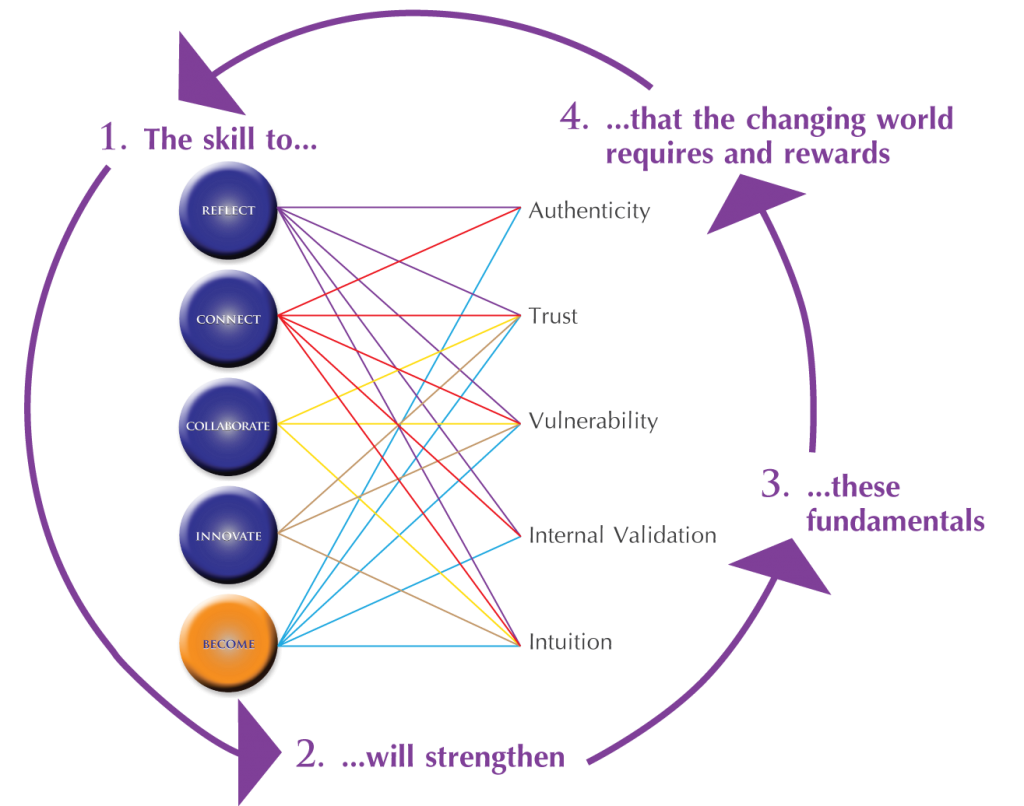how to trust in the changing corporate world
The ‘embers’ model facilitates what the changing world is rewarding – authenticity, trust, vulnerability, internal validation and intuition. By doing so, it is weaving a vast, interconnected body of support for the way ahead. How is your business demonstrating evidence of being a part of the changing future?
Why would a corporate leader prioritise trust?
Business represents an exchange, where a customer may swap goods and services for cash whilst an employee may exchange time and effort for possibility.
Being trusted contributes to self and partner confidence. Trusting contributes to the degree of openness in relationships. Being trustworthy is a hallmark of distinction which brings recognition, and highlights a commitment to social responsibility. Could this attract like-minded clients? Could this become key to your reputation?
Could this be your business’s differentiator?
How can trust REALLY impact profitability?
Revenue less expenses = profit.
Trust impacts revenue. We rarely do business with those we do not trust, and if we do, it seems to be short-lived. We rarely tell our colleagues and friends about businesses we don’t trust. We rarely hear of businesses being financially successful having no followers or loyal customers.
Suppliers we don’t trust rarely reduce their rates for us. Those by whom we are not trusted will rarely pass on great ideas to reduce expenses. Our team members are in fact suppliers, and hence when trust does not exist, turnover will increase thereby pushing up recruitment costs.
The equation now becomes reduced revenue less increased or maximum expenses = minimal or non-existing profit.
What benefit does trust bring the inner workings of an organisation?
Trust takes time to build and allows us to apply the skills of reflection and connection. With trust, there is less reactivity due to alignment being present.
Trust breeds willingness – this may translate into a willingness to actively participate, to proactively share new ideas, a willingness to listen for the facts and not the emotions and a willingness to perform at peak performance.
Trust solidifies relationships. Without it, the Board and CEO, the team and Supervisor, the industry authority and the business and even the suppliers and the client simply won’t stretch to make things happen.
Trust saves time! When there’s doubt and suspicion, so much energy is invested in the search for misalignment, the collection of evidence and even the creation of opinions and stories.
In what can we trust as business leaders?
First and foremost, business leaders must trust themselves. This provides a huge opportunity for self knowing, self confidence and self worth. It is impossible to trust others if we dont trust in self. Intuitive hunches and message will be received, heard and serve consistently once self-trust is present.
Trusting others moves a relationship into the realm of collaboration and innovation that provides opportunity to build the future effortlessly, accepting guidance and maximising impact from all around. Business simply cannot work in isolation and depends on relational activity – without it, contribution and financial success wont flow.
Business leaders’ trust in their product or service is vital for success, which builds pride and energy that customers will ‘feel’. With product being one part of the business operating environment (strategy, vision, business principles, systems, processes, culture, people) trust will strengthen this, mitigating risk of misalignment and non-serving business practice.
Trust in change will be the ultimate reward, with change competency and leaders seeking to create change. Trust in the unknown comes from conviction and belief in all of the above, and knowledge and trust that a changing future can serve all equally.
business example of being trusted, being trusting and trustworthiness adding value
coming soon
business example of being trusted, being trusting and trustworthiness adding value
coming soon
If you would like an ‘embers’ facilitator to take you and your team through the process we have several workshop levels to choose from. Contact us for a consultation and ‘readiness’ evaluation.
Skills for 21st century leadership include reflection and connection, collaboration and innovation leading us to ‘become’ and evolve beyond current barriers. However achieving that in isolation of what will serve the corporate future may be futile. The corporate world is needing and rewarding trust, that which breeds co-operation, involvement and confidence. From these stem a willingness to make things work, a desire to do whatever it takes and ownership of results and/or continuous improvement.
One example of business with credible evidence that is impacting positively whilst creating the future includes:
- Whole Foods Market lead by the evolved leader Mr John Mackey
Let us know when you see or hear of more great examples!








